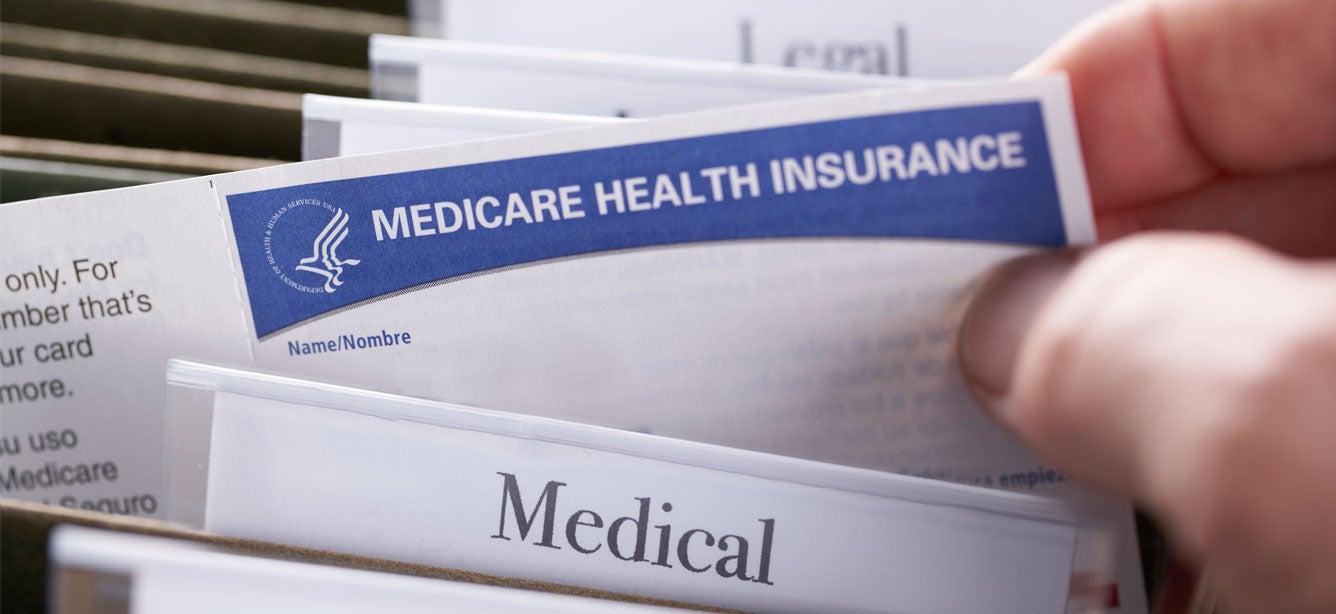
Related Topics
If you’re age 65 or close to turning 65, you’ve probably heard about the red, white, and blue Medicare card. This plastic card is your ticket to receiving your health care benefits in a variety of settings. Below, we answer some of the most common questions about the Medicare card and how it’s used.
Will I automatically get my Medicare card in the mail?
If you’re receiving Social Security or Railroad Retirement Board (RRB) benefits at least four months before you turn 65, you'll automatically be enrolled in original Medicare (Parts A and B). You can expect your Medicare card in the mail three months before your 65th birthday. If you're not automatically enrolled in Medicare, you'll receive your card about two weeks after you sign up.
If you do not receive your Medicare card in a timely manner, call 1-800-MEDICARE (633-4227) and talk to a representative.
What information is on my Medicare card?
Your Medicare card provides proof that you have Medicare health insurance, whether it is Part A (Hospital Insurance), Part B (Medical Insurance), or both. It shows the day your coverage starts and your Medicare number, which is unique to you (your Medicare number is no longer the same as your Social Security number). Your doctors, pharmacists, and other health care providers will ask you to provide this number at the time of service.
This is what a Medicare card looks like:

If you signed up for a Part D (prescription drug) or Medigap (supplemental insurance) plan, you’ll receive a separate card for those coverages. Those cards must be presented to your doctor, pharmacist, or other health care providers in addition to your regular Medicare card.
If you have a Medicare Advantage (Part C) plan, you will use your Medicare Advantage card when you visit health care providers instead of the red, white, and blue Medicare card.
Should I carry my Medicare card with me at all times?
Yes. You will need to take your card with you to all medical and health services appointments. You should also have it available when speaking with Medicare or your health insurance or prescription drug insurance company.
What is the best way to protect my Medicare card?
Just like your Social Security card and driver’s license, your Medicare card is a very important piece of identification. It should be carried with you when you’re away from home (e.g., in your wallet). A transparent plastic card protector can help shield your card from daily wear and tear.
It’s a good idea to make a photocopy of your Medicare card—or write down your Medicare number. Keep that information in a safe place in case your physical card ever gets lost.
Medicare scams are common. That’s why you should never give your Medicare card number or Social Security number to anyone other than a health care provider, pharmacy, insurer, or others who work directly with Medicare (such as your State Health Insurance Assistance Program). And keep in mind that Medicare will not ask for this sensitive information over the phone. Learn how to spot and protect yourself from Medicare scams.
What should I do if I lose my Medicare card?
Things happen—so if you lose, misplace, or damage your Medicare card, don’t worry! You can request a new card either online or by telephone:
- Log into (or create) your Medicare account. From there, you can print your current card or order a replacement.
- Call 1-800-MEDICARE (1-800-633-4227) and ask for a replacement Medicare card to be sent in the mail. TTY users can call 1-877-486-2048



